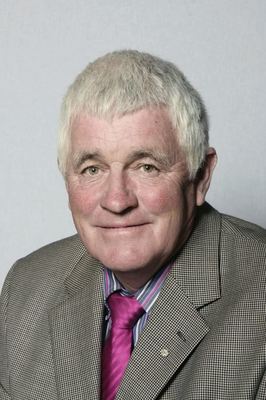About 770 new local farming jobs are a step closer after the completion of a pipeline to a developing food production precinct near Geelong, according to a federal MP.
The pipeline, completed on Friday, was stage one of the $11.8 million Golden Plains Food Production and Employment Precinct at Inverleigh, Corangamite MP Sarah Henderson said.
The 4000-hectare precinct would “unlock” $160 million in regional investment and create the 770 jobs over the next decade as a “boon for the local and state economy”, she said.
The 18km pipe would give the food precinct’s farmers and producers a reliable supply of water so they could “plan their production with certainty”.
“The installation of a pump station and supporting infrastructure has drawn on the skills of many residents and I am delighted to see the ongoing job creation over the next 10 years,” Ms Henderson said.
Golden Plains mayor Des Phelan said the project was one of the most exciting on record for the shire.
“Agriculture is Golden Plains Shire’s largest industry sector, making up 26 per cent of the local workforce. Our farmers contribute significantly to Victoria’s primary produce supply, producing four million eggs, 600,000 chickens, 1000 pigs and 28,000 litres of goat milk each week,” Cr Phelan said.
“The Golden Plains Food Production Precinct, when completed, will not only support the growth of intensive agriculture in the shire – it will generate $160 million for the local economy and create hundreds of jobs over time.
“It’s important for the council to support existing primary producers and create opportunities for those of the future and the Golden Plains Food Production Precinct will do just that. The new pipeline will supply town water into the precinct, enabling investment and expansion of intensive agriculture in Golden Plains Shire, creating significantly increased economic output for the shire, the wider region and the state.”
The shire, Federal Government, Barwon Water and State Government have made respective funding commitments to the project of $1.23 million, $4.17 million, $3.44 million and $2.94 million.
Stage two’s installation of water infrastructure would commence when demand for supplies reached a “stipulated capacity”, the shire said.
Pipeline to unlock Golden Plains ‘foodbowl’

Digital Edition
Subscribe
Get an all ACCESS PASS to the News and your Digital Edition with an online subscription
Retelling the story of a rockstar
Australia has a rich pantheon of rock heroes; from Bon Scott to Barnesy, Billy Thorpe to Shirley Strachan, the Aussie musical landscape is filled...








